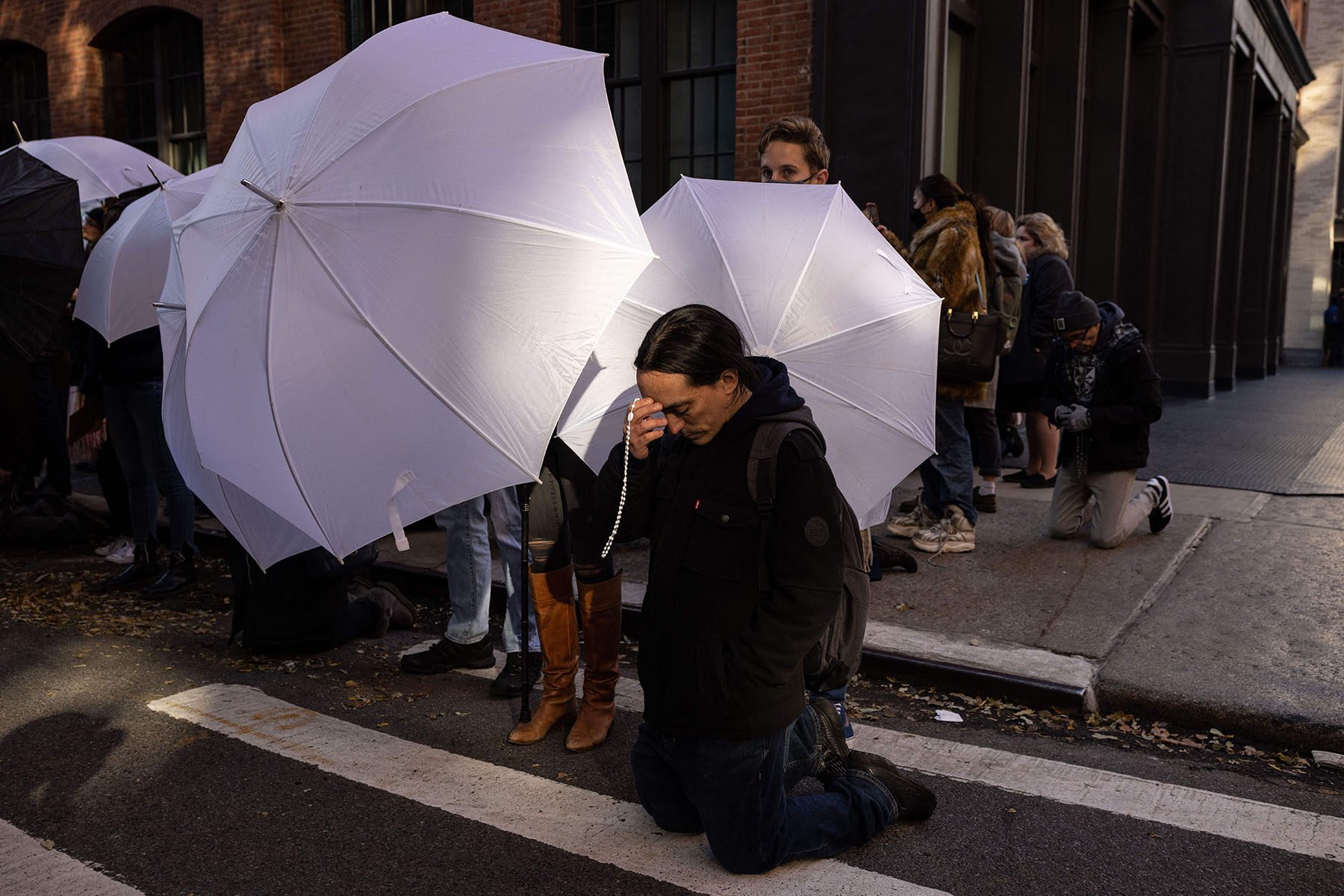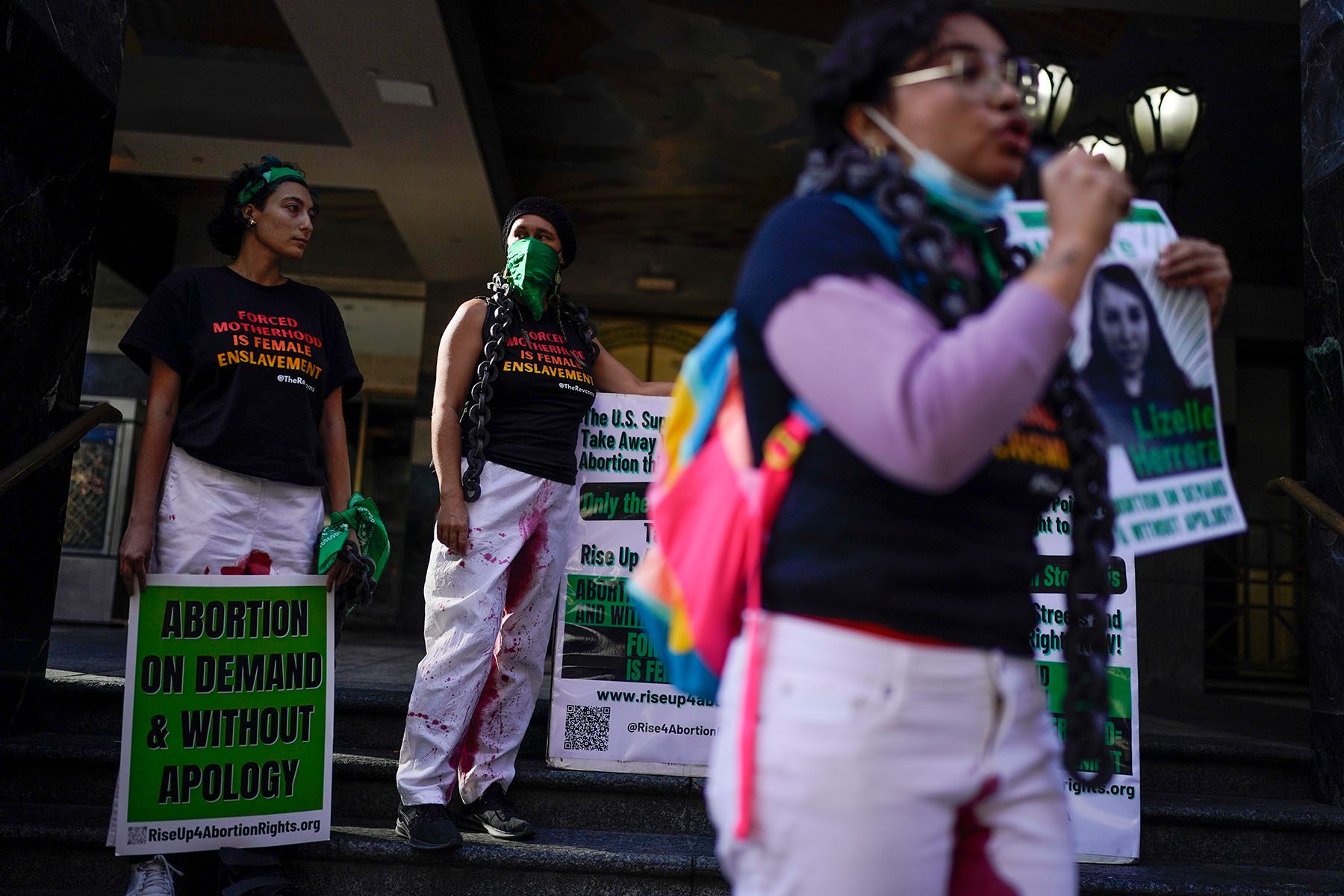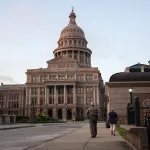Even as Republican-led states have passed an onslaught of abortion restrictions in recent years, some Democrat-controlled legislatures have gone in the opposite direction, working to codify protections and, in a few cases, even increase access.
A leaked draft decision that shows the Supreme Court voted to overturn Roe v. Wade prompted several Democratic governors and state lawmakers to highlight those efforts. But while they may have shored up access in their states, many of those recent actions do not address a projected surge of people who will travel from other states to access an abortion. And with many part-time legislatures done for the year, time may have run out for further action.
Spurred by the looming Supreme Court decision, some states took steps to codify the protections established by Roe, which in 1973 held that the U.S. Constitution guaranteed a right to an abortion. Colorado, New Jersey and Washington passed such laws this year, meaning 16 states and the District of Columbia have statutory abortion rights protections.
But in states where abortion isn’t expected to be heavily or almost completely restricted if Roe is overturned, clinics are worried about whether they have the capacity to provide abortions for everyone who may seek them. There have been few legislatures this year that have expanded the capacity to provide abortions, even as researchers estimate the number of patients seeking to travel to their clinics from out of state could increase by millions.
Policy analysts note that for many patients who will live in newly restrictive states — where legislatures have passed bans on abortions after six weeks or 15 weeks or even all-but-total bans, plus restrictions on medication abortion — the cost of traveling for an abortion will come to hundreds if not thousands of dollars.
A handful of states are starting to push bills that would address those logistical and financial hurdles. But abortion policy experts told The 19th that these laws are few and far between — and still in their early stages.
“We’re at the very beginning of this. It’s just occurring to blue states that people are going to travel from out of state and maybe something should be done,” said Mary Ziegler, an abortion law expert at Florida State University. “No one is really getting into it in any greater kinds of depths.”
In Illinois — which is expected to be a destination for many people seeking out-of-state abortions — lawmakers last year passed legislation that ended a requirement that parents be notified when a minor seeks an abortion. That follows a 2019 law that codified abortion rights in the state.
But those changes will do little to address the surge of people likely to come there, said David Cohen, a law professor at Drexel University in Philadelphia who has studied the legal impact of abortion restrictions across state borders. Nothing else is likely to pass this year: Lawmakers wrapped their session last month.
“Illinois is surrounded by states where abortion is going to be banned. Illinois is ground zero for needing protections for providers,” he said. “And their session is over, barring an emergency.”
At a news conference Tuesday, in the wake of the leaked Supreme Court draft, Democratic Gov. J.B. Pritzker indicated Illinois would be open to all pregnant people seeking abortions.
“Illinois is a beacon of hope in an increasingly dark world because we will fight like hell, not just for the women of Illinois, but for every person in our state and every person across the nation who believes not in limiting civil rights and human rights, but in expanding them,” he said, according to The Chicago Sun-Times.
-
More abortion coverage from The 19th
- Impacts of leaked Supreme Court draft decision could have a ‘chilling effect’ on abortion access
- What we know about the Supreme Court draft opinion — and what it could mean for abortion access
- ‘You never forget it’: These are the stories of life before Roe v. Wade transformed America
Some states have taken more comprehensive action. In California, the legislature has passed a law eliminating co-pays from the California’s Medicaid abortion benefit. California is among the small group of states where Medicaid, which insures low-income people, actually covers abortions. Its Planned Parenthood clinics are working to hire more staff.
And lawmakers in Sacramento are pushing more bills, including one that would, among other changes, create a state abortion fund that would help people pay for abortions and associated travel costs, including those from out of state. Another bill would help support clinics that provide abortions for people without insurance that covers it. Both pieces of legislation are still in committee, but the governor has indicated he supports passing laws that would turn California into an “abortion sanctuary.”
On Monday, California Democratic Gov. Gavin Newsom announced his support for adding abortion protections to the state constitution. Newsom is up for reelection this year.
“We know we can’t trust the Supreme Court to protect reproductive rights, so California will build a firewall around this right in our state constitution,” he said as part of a statement co-signed by legislative leaders.

Many statehouses, like Illinois’, are part-time and done with their formal legislative sessions for the year. But New York, one of the states with robust abortion protections, still has a few weeks of session left. Jessica Gonzalez-Rojas, a Democratic assemblymember there, said she has filed a bill that would create a mechanism for health providers and organizations to seek additional money to address gaps in their funding if they face increased demand for abortion access. She did not have an estimate yet on potential financing because lawmakers have already passed the upcoming state budget.
“We’ll have to sort of navigate how to move this legislation forward and what the dollar amount looks like,” she said. “Again, it was a concept we were working on, and now, it was just urgent to get it moving.”
Elizabeth Nash, who tracks abortion policy at the nonpartisan Guttmacher Institute, said some states may take additional action now that the future end of Roe has become more crystalized. (On Tuesday, Chief Justice John Roberts confirmed the authenticity of the draft but added it doesn’t represent the higher court’s final ruling in the case.)
“I’m just wondering if this is sort of a breakthrough moment for progressive states to say, ‘Oh, OK, now we’ll put some money toward this,” she said.
Other states have added concrete budget numbers to logistics. Oregon’s legislature voted to allot $15 million to an abortion fund intended to help people traveling in from other states.
Those are meaningful investments, said Cohen of Drexel University.
“If Roe is overturned, the problems that are going to be created — a lot of them can be solved by money,” he said. “Not all. But a lot can.”
Late last month, Connecticut legislators approved a bill that would create legal protections for out-of-state people seeking abortions. The provisions would ensure that another state’s abortion restrictions — including penalties against someone who performed or facilitated an abortion — would not be enforceable in Connecticut. The state’s governor has indicated he will sign the legislation.
Connecticut’s legislation addresses new restrictions passed in red states that attempt to punish people who cross state lines to access an abortion. But it does not include protections for mailing abortion-inducing medication to people in states where it has been outlawed, though the legal outlines of such a prosecution are unclear. And the bill’s supporters acknowledge that few people are expected to travel to Connecticut for abortions compared with other states that might be closer. Few of its neighbors have passed restrictions on the procedure, and other blue-leaning states are closer to those expected to ban abortion.
The Connecticut bill would also expand who can perform abortion services in the state to include advanced practice registered nurses, physician assistants and nurse-midwives.
Other states are considering similar expansions so that more medical providers can perform abortion services. In Maryland, lawmakers put $3.5 million annually toward a fund that will train more medical providers in performing abortions, potentially addressing capacity issues.
Maryland Republican Gov. Larry Hogan vetoed the creation of the fund, but Democrats in the legislature had enough votes to override it. The mandated fund will be in effect in 2023. While lawmakers set aside immediate money for the budget year that begins in July, it’s unclear if Hogan will veto that money.
Maryland Del. Ariana Kelly was a lead sponsor of the bill. She said that the state had rarely touched abortion policy because abortion protections had been codified decades ago but that the looming Roe decision forced lawmakers to take action. The legislation expands the types of medical professionals who can perform an abortion and expands insurance coverage for abortion services.
“We knew that we were going to see people coming from out of state. We saw what happened with Texas. We saw the increased wait times in those adjacent states to Texas,” she said.
Gonzalez-Rojas in New York said the state could see an influx of out-of-state travel for abortion access. She said it’s important that the state be ready to address that need.
“We want to do that without stigma, without shame and with dignity and care and compassion, given what we’re facing as a nation.” she said.






